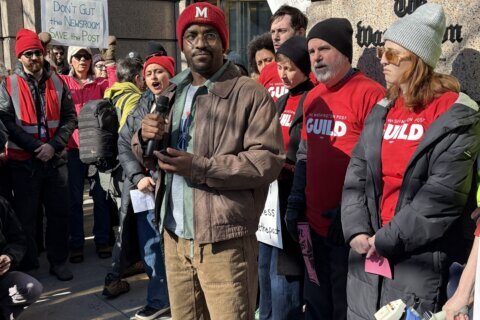WASHINGTON — It’s the time of year when pipes and water main breaks start to spike, with water utilities averaging over a thousand repair calls every winter when temperatures plummet through February.
But when a pipe bursts inside your house, or even in your yard, the responsibility to fix it falls on the homeowner. Depending on where the damaged pipe is, the repairs can be expensive. But if you want to avoid calling a plumber, there are a few things you should keep in mind.
“If there are pipes in your house, and it’s in an area that doesn’t get a lot of heat, make sure it’s 55 degrees or above — because if it’s not, that pipe could freeze and burst,” Washington Suburban Sanitary Commission (WSSC) spokeswoman Lyn Riggins said.
The resulting mess is one you really don’t want to deal with. And in many cases when it has happened, it’s resulted in frantic phone calls to WSSC asking for help in stopping the new indoor water feature from getting worse.
“What’s most important that a lot of people don’t know is, where’s the main water shut-off valve in the house? Know where that is,” said Riggins. “If a pipe breaks, you want to turn the water off in your house as quickly as possible so you have as little damage as possible.”
Outdoor water fixtures should also be taken care of before winter sets in for good.
“If you’ve got hoses that are still hooked up … at some point it’s going to stay cold, so make sure hoses are disconnected from outdoor hose bibs,” Riggins also advised. “Drain those, and close the valves so there’s no water getting to those pipes that will experience colder temperatures.”
Riggins also offered up a tip to keep pipes in uninsulated areas from freezing during an exceptionally long cold snap, like when an arctic air mass sits over the region for days at a time.
“Consider leaving a couple of faucets on to trickle,” said Riggins. “Maybe not when you’re not home, but when you’re home — doing that will help — you keep that water moving through the pipes so nothing freezes.”
But if it does end up happening, once you’ve turned the water off: It’s time to call a plumber.








